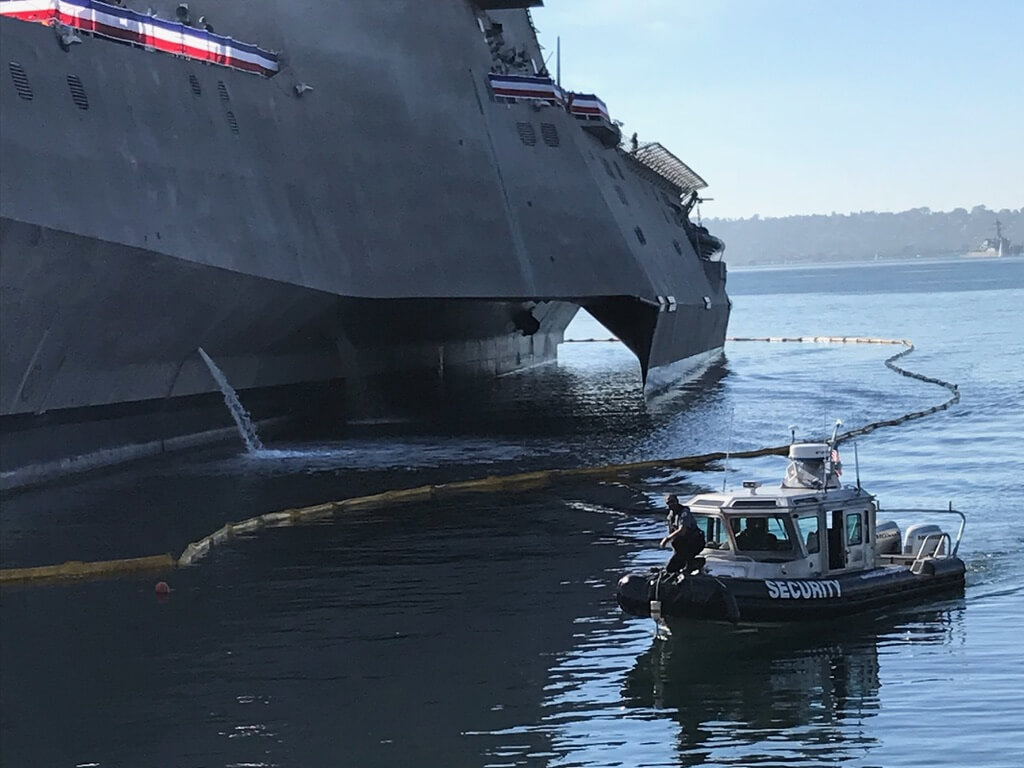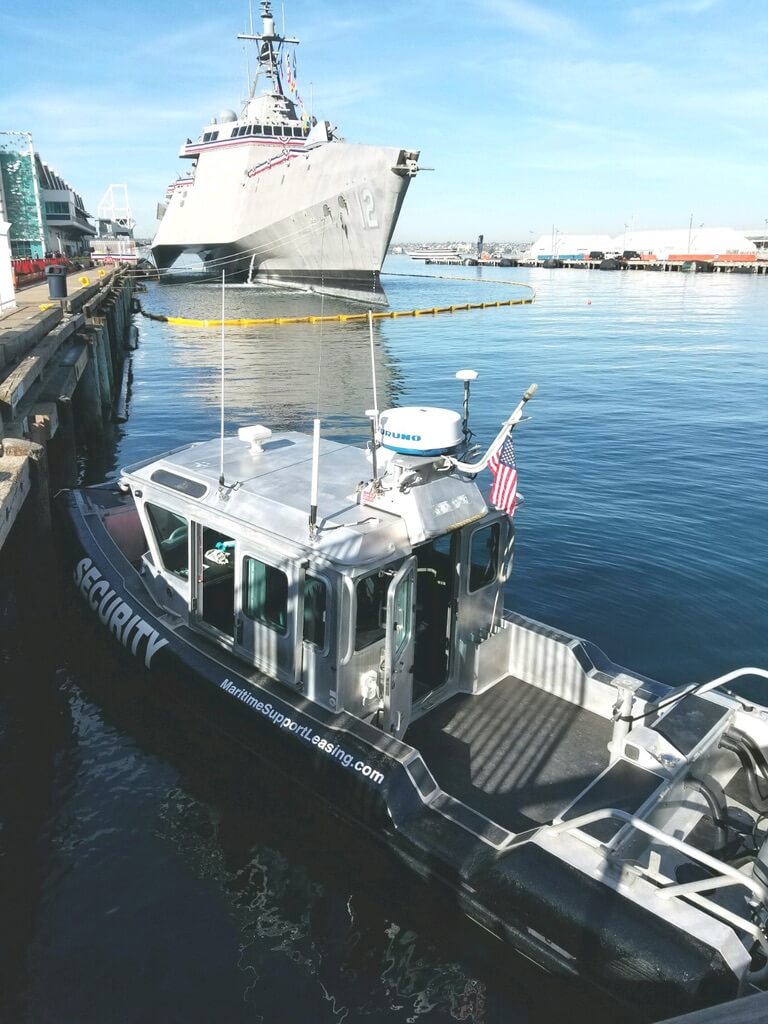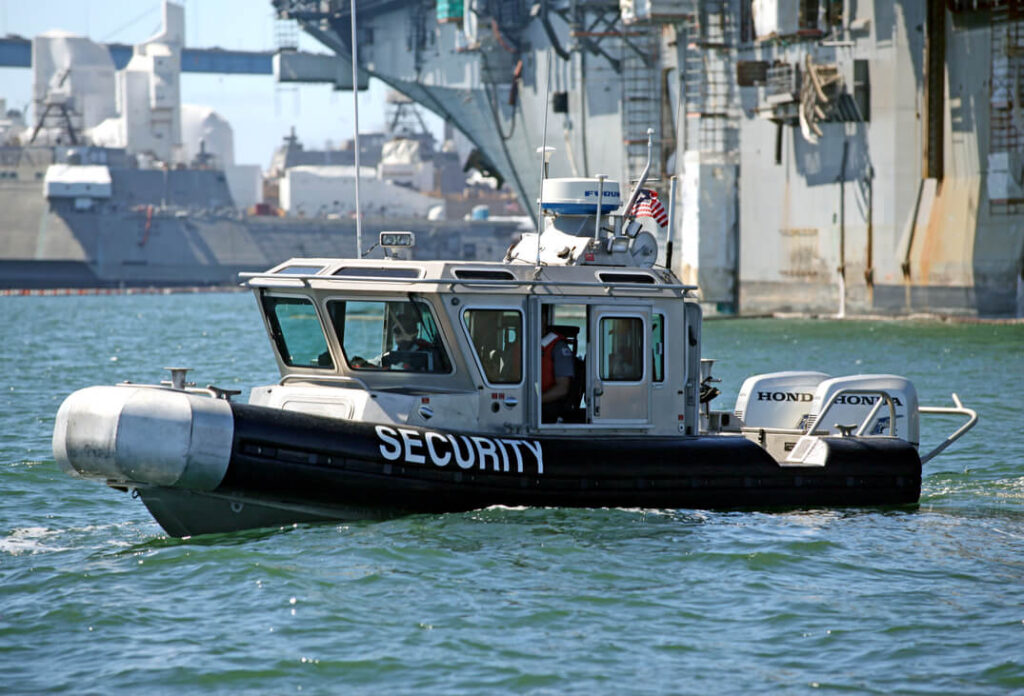How Private Security Teams Safeguard Naval Assets in Shipyards and at Sea

Protecting U.S. naval vessels is a mission that extends beyond the Navy itself. While military personnel provide security for ships in active duty, private security teams play a critical role in protecting these high-value assets while in shipyards, during transit, and at key events.
With increasing threats—ranging from espionage and sabotage to unauthorized access and terrorist activities—the Navy relies on specialized private security providers to reinforce its force protection strategy. These teams bring expertise, agility, and advanced technology to secure naval vessels at every stage of their lifecycle.
Why Private Security is Essential for Naval Protection
Naval vessels, especially those undergoing maintenance or repairs in shipyards, are vulnerable targets. When ships are docked, they lack the mobility and defensive readiness they have while deployed at sea. This is where private security steps in to bridge the gap.
Key reasons private security is critical include:
Force Multiplication: Security providers supplement Navy resources, ensuring that vessels remain secure without stretching military personnel too thin.
Shipyard Security & Access Control: Private teams enforce perimeter security, ensuring only authorized personnel can enter restricted areas.
Waterborne Patrols & Threat Detection: With trained teams on vessels like the SafeBoat Defender 25’, security providers monitor and deter unauthorized activity around naval ships.
Incident Response & Risk Mitigation: Security personnel are trained to respond to breaches, conduct threat assessments, and prevent security incidents before they escalate.
Compliance with NAVSEA 009-72 & Force Protection Directives: Ensuring that shipyards adhere to strict security protocols to maintain contract compliance and operational integrity.
Key Responsibilities of Private Security Teams

1. Shipyard Security & Perimeter Control
While docked, naval vessels require strict access control. Private security teams enforce:
- Credentialing and verification for shipyard personnel and contractors
- 24/7 surveillance with cameras, sensors, and on-foot patrols
- Inspection of deliveries and cargo entering restricted areas
By securing the perimeter, these teams prevent espionage, sabotage, and insider threats.
2. Waterborne Security & Maritime Patrols
Naval vessels are not just vulnerable on land—they require protection on the water as well. Private maritime security teams:
- Conduct routine patrols around docked ships
- Use thermal imaging and sonar to detect underwater threats
- Enforce Naval Vessel Protection Zones (NVPZs) to deter unauthorized boats
These measures prevent hostile actors from approaching ships unnoticed.
3. Supporting Anti-Terrorism & Force Protection
In today’s world, naval assets are prime targets for asymmetric threats. Private security teams contribute to:
- Monitoring for suspicious activity that could indicate terrorist planning
- Rapid response to potential threats, from small boat attacks to unauthorized drones
- Coordination with law enforcement and military units for joint security operations
4. Escort & Protection During Vessel Transits
When naval ships move between shipyards or deploy from port, private security teams provide escort support. This ensures:
- Safe transit through high-risk waters
- Protection from unauthorized vessels attempting to approach the ship
- Continuous communication with naval forces for situational awareness
5. Advanced Security Technology Integration
Modern security is not just about manpower—it’s also about leveraging cutting-edge technology. Private security teams enhance naval protection with:
- Thermal and night vision capabilities for 24/7 monitoring
- Side-scan sonar to detect underwater threats
- Video surveillance and AI-powered analytics to detect unusual activity
Why the Navy Relies on Private Security Providers

The Navy entrusts aspects of shipyard and maritime security to private companies because of:
Expertise in Maritime Security – Specialized teams are trained in vessel protection, waterborne operations, and force protection strategies.
Operational Flexibility – Private security can scale operations up or down as needed, ensuring resources are allocated efficiently.
Cost-Effectiveness – Hiring specialized private teams allows the Navy to focus its personnel on mission-critical tasks.
Technology & Innovation – Private security firms bring advanced surveillance and threat detection systems that complement military assets.
Six Maritime: A Trusted Partner in Naval Security
At Six Maritime, we provide private security solutions tailored to the needs of shipyards, naval vessels, and maritime infrastructure. Our services include:
Waterborne security patrols to protect naval ships in dock and in transit
Shipyard security teams trained in NAVSEA 009-72 compliance
Threat detection & response with advanced technology integration
Escort services for vessels transiting through sensitive areas
By working alongside shipyards and naval forces, we help ensure the highest level of protection for America’s most valuable defense assets.
Final Thoughts
Private security is a crucial component in the protection of U.S. naval vessels, filling critical gaps in force protection at shipyards and on the water. From securing shipyards to patrolling maritime zones, these teams play a key role in national defense.
At Six Maritime, we take this responsibility seriously—because protecting naval assets means protecting our country’s security.
